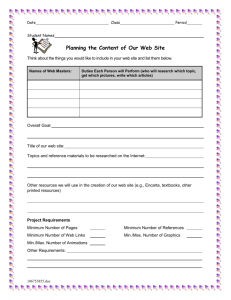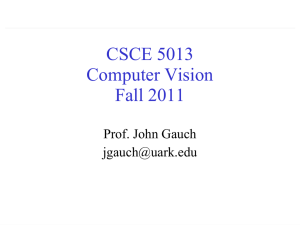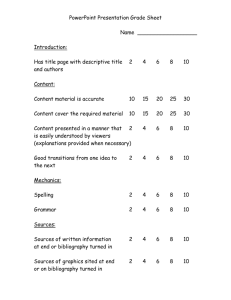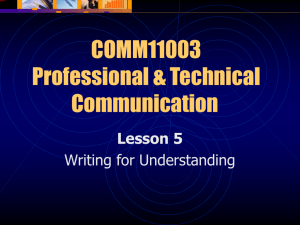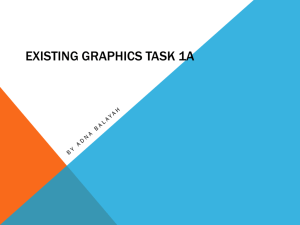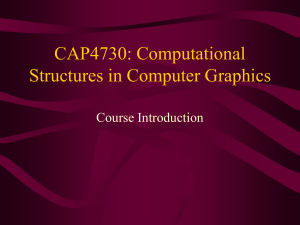Setting the Stage for Success - Winston
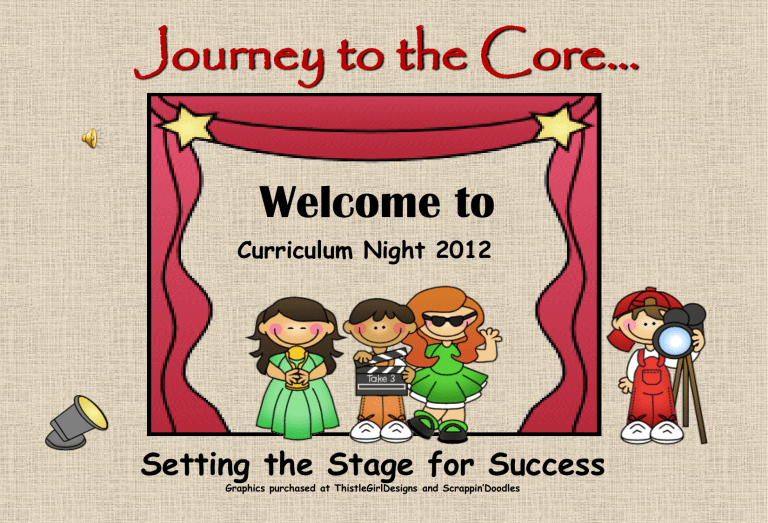
Journey to the Core…
Welcome to
Curriculum Night 2012
Setting the Stage for Success
Graphics purchased at ThistleGirlDesigns and Scrappin’Doodles
Setting the Stage for Success….
Our Goals are…
• To enable your child to build a strong foundation to become a lifelong, independent learner.
• To help your child develop or maintain an excitement for and love of learning.
• To help your child practice higher level, critical thinking skills in all subject areas.
• To help your child set individual learning goals and plan and implement strategies to meet those goals.
Martha Lyerly – mlyerly@wsfcs.k12.nc.us
Sheena Murnaghan – smmurnaghan@wsfcs.k12.nc.us
924-3434
Purchased graphics by thistlegirldesigns.com
Our Daily Schedule
8:20 – 8:45 News/Morning Work, Calendar
8:45 – 9:45 Math
9:45 – 10:00 Restroom/Snack/Read Aloud
10:00
– 11:45 Language Arts (Writing, Teacher
Directed Reading, Guided
Reading including Daily Five
Rotations)
11:45 – 12:15 Lunch/Restroom Break
12:15
– 12:35 Word Study/Language Arts
12:35
– 1:05 Recess
1:05 – 1:55 Social Studies/Science
1:55 – 2:40 Encore
2:40 Pack-up/Review & Extend
2:45 Dismissal
Graphics purchased from Scrappin’ Doodles
Day 1 PE
Day 2 MEDIA
Day 3 TECH
Day 4 GUIDANCE/SCIENCE
Day 5 ART
Day 6 MUSIC
Graphics purchased at Thistle Girls
Classroom Expectations
Stay on task.
Try to always do your very best.
Always be prepared and pay attention.
Remember to show respect so that all of us can have the best opportunity to learn!
Graphics purchased at Scrappin” Doodles
REWARDS & CONSEQUENCES
• Rewards
– Individual: Star Student!
– Small Group: TEAM points
– Whole Class: 100’s Board Points
• Consequences
– Behavior Board ...Walk of Fame – Stay on the Red Carpet!
Graphics purchased at Scrappin” Doodles
Home-School Communication
STAR Binder/Planner
Class Website/Blog/Wiki
Weekly Class Newsletter
Tuesday Folder
Progress Reports
Conferences
Email:
mlyerly@wsfcs.k12.nc.us
smmurnaghan@wsfcs.k12.nc.us
Our Second Grade Curriculum
• Common Core Standards, which have been adopted by
45 states, will guide our Math, Reading, and Language
Arts.
• We will be following the North Carolina Essential
Standards in all other subjects.
Parent Resources:
WSFCS (click on Parents/Community Tab http://wsfcsel.schoolwires.net/domain/7423
Wake County ( http://www.wcpss.net/common-core/ )
Graphics purchased at Scrappin” Doodles
Common Core
These new curriculum standards are geared toward student proficiency for college and career readiness. Standards are aligned throughout all grade levels, so that each grade provides the foundation for the next.
National Standards for Math and Language Arts
• Inquiry Based
• Project Based and Integration in other subject areas
• Global Learning Based
• 21 st Century Skills
• Require lots of thinking and explaining
Graphics purchased at Scrappin” Doodles
Math • Operations and Algebraic Thinking
• Numbers and Operations in Base
Ten
• Measurement and Data
• Geometry
Our Common Core Math Topics will include…
• Math Facts
• Addition / subtraction concepts and regrouping
• Problem solving
• Place value
• Geometry – shapes and fractional parts of shapes
• Measurement and temperature
• Graphs and Venn Diagrams
• Time
• Number lines
• Money
Graphics courtesy of Schoolhouse Graphics
Our students will be engaged in Guided Lessons with teachers, Smartboard activities, independent practice, and Center Rotations involving hands on activities.
Balanced Literacy
Our Literacy Block includes many daily opportunities to develop skills in reading, writing, listening, and speaking.
• Interactive Read Aloud- Teacher reads a selected text aloud to students. The teacher and students interact about the text as the selection is read aloud.
• Teacher Directed Reading- Teacher selects grade level text and involves students in reading the text together with the teacher. Skills are taught/maintained during this
• Phonics, Letter, Words- During TDR; students learn/review decoding/language arts strategies
• Guided Reading- Teacher selects text according to the students level and needs.
• Independent Reading- Students read independently. (Alone or with a partner)
• Shared Writing- The teacher and students work together to compose stories.
• Interactive WritingThe teacher and students work together and “share” the pen to compose stories and messages.
• Guided Writing or Writer’s Workshop- Students are engaged in writing a variety of texts. Instruction is provided by the teacher through mini-lessons and conferences.
• Independent Writing- Children compose their own pieces of written text.
Graphics courtesy of cutecolors.com
and Graphics by snogirl
Daily Five
To gain reading INDEPENDENCE and build STAMINA !
• Read to Self
(to build comprehension)
• Work on Writing
(Composing, Editing, Revising)
• Listening to Reading
(Computers,tapes)
• Read to Someone
(Partner Reading)
• Word Work
(Spelling activities, Wordly Wise )
Strategy
Groups
Vocabulary/
Grammar
Teacher
Read
Aloud
Modeled
Expectations
LA
Independent reading to build
STAMINA &
FLUENCY
Reading Mini
Lessons &
Conferences
Writing Mini
Lessons &
Conferences
Literacy Development
Your child’s literacy develops along a continuum. Improving abilities are measured by observing and assessing letter/sound relationships, word recognition, decoding and meaning making with integration of cue systems, responses/retellings, and fluency.
We use reading levels as a tool, not the sum of your child’s overall literacy development.
• Reading Strategies
• When reading with your child, you can focus your reading that day on one of these aspects. Your child should be able to tell you exactly what goal he/she is working on: “I am working on my accuracy” and his
/her strategy: “I am looking for small words inside big words to help me read new words”.
• Research shows that when students know exactly what they need to work on, and why, they are much more successful in meeting their goals! You can do this at home too! This is divided into 4 categories:
Comprehension, Accuracy, Fluency, and Expand
Vocabulary.
• Comprehension“I understand what I read.”
• Check for Understanding : We have learned that it is very important to not only do our best reading, but to also do our best thinking! We know it is necessary to stop often during reading to make sure we have understood what we are reading. Practice this at home by stopping every so often during the story. Your child should be able to give a quick summary of what they just read. Who was the story about? What has happened so far? Go ahead and use the words, “Let’s check for understanding,” with your child. They know just what it means!
• Back up and Reread: Have you ever read a page or two of a book and suddenly realized that you don’t have a clue what you just read?
What do you probably do? You back up and reread it! This strategy is important for children to try when they have not understood something they just read. By backing up and reading a section or page over, they will hopefully take their time and focus in more which will lead to a clearer understanding!
• Name the setting: The setting is where the story is occurring and when it is happening.
• Know the title, author and illustrator: Your child should know how to recognize the title, author and illustrator (if there is one) in every book that they read.
• Retell the story: Tell what happened at the beginning, middle and end of the story.
• Making connections: We discussed 3 different connections that the student can make while reading.
– Text to Self: The student tells how he/she has something in common with the characters or the story.
– Text to World : The student makes a connection with the knowledge that he has with something in the book.
– Text to Text: The student makes a connection between two books (same characters, setting, etc.)
• Identify Fiction or Non-Fiction : The student can tell if it is real facts (non- fiction) or a made up story (fiction).
• Make predictions: Your child is practicing stopping in the story and thinking about what might happen next. It should make sense with what is happening in the story but doesn’t have to be correct.
• Know author’s purpose: Your student can determine what the author’s purpose was in writing the book (to inform, to entertain, etc.).
• Use text features: This is most important in non fiction text. The student can use titles, headings, captions, and graphics to understand more about what is happening in the book.
• Ask questions throughout reading: Your child is working on thinking and asking why while reading. They are realizing that good readers continue to ask questions throughout the reading process.
Accuracy“I can read the words.”
• Cross-Checking: Your child has been learning to stop when they have just read a sentence that doesn’t make sense or if they get to a word that they just don’t know. After they find that tricky word, they ask themselves some questions: “Does the word I’m reading (or thinking it could be) match up with the letters or picture I see on the page?” “Does it sound right?” “Does it make sense?”
• Tap the word: This is a strategy that we emphasize in
Foundations (our phonics program) and use to read and spell words. Your child should be able to use their fingers to tap out each sound (it is a tactile way to sound out words).
• Say it fast: Your child is working on reading the words after tapping the word. Your child should get their mouth ready to say the sounds, say and tap each sound, and then say the sounds fast to say the word.
• Know letters and sounds: We have to know the sounds of the words to read and the letter names to spell.
• Flip the soundThis is a strategy that the students use as they begin to encounter words with long vowels. We have discussed short vowels so it is natural for them to read the words with a short vowel sound. If that way does make sense in the story we say,
“Flip the Sound.” They then say the long vowel sound (it always says its name). Example: If the word “cake” is in the story, your child may say “cak”. That does not make sense. So then, they should say the long vowel sound and say “cake”. That word should make sense with the pictures or rest of the sentence.
• Find Chunks in words: This means that the student is finding smaller words or parts in the larger word.
• Know trick words: Your child is practicing reading our trick words in stories. Your child should be able to recognize these words automatically while reading.
• Play with rhyming words: Students can see a word like “cat” and know the words, “mat, hat, bat, etc.
• Identify compound words: Students notice that there are smaller words in larger words. For example, cupcake is a compound word that students can read if they break the word into its two words.
• Skip the word and come back: The student can skip the word and then come back after reading the rest of the sentence. It might give context to what the word is and how to say it.
• Fluency“I can read smoothly, with expression.”
• Choose Good Fit Books: This is a BIG one in second grade!
We have learned that it is SO important to spend time reading books that are good fit books for each of us (we used shoes to see how different people need different size shoes). It is very important for your child to be able to read books that they can read independently with very few to NO errors. We use the 3 finger ruleif they can’t read more than 3 words on a page then the book is too hard right now. This will help them become smooth (fluent) readers. I meet with each child often so that they can show me the just-right books in their book tote. After your child reads a book to you at home, ask them to share how they felt about the book. Did the book feel too easy, too hard, or just right? Why?
• Read and read it again: Your child is learning that when you are reading sometimes you need to read it multiple times to read it the correct way. We have talked about how it sounds to read so that people enjoy listening to it and not like a robot.
• Read and talk like the characters: This means that your child is working on expression and making the book come to life. Add emphasis on different characters and what they are saying. If there is something exciting going on in the story, make it sound exciting and how the characters really would sound.
• Read to the end of the sentence: It always sounds good to read a book and not read choppy or word by word. As adults, we know that a sentence means to pause in reading. That is how we want our students to read. So your child is working on reading the entire sentence without stopping. It may take a few times to get it right, but that is what practice is for. Make it like a game and see how many sentences they can read without stopping in the middle of the sentence.
• Expand VocabularyI know, find, and use interesting words.”
• Tune into Interesting Words : We are excited to learn new words and figure out what words mean. When this happens at school, the word is explained and then added to our Word Collector. We refer back to the words often as this will deepen their understanding of them and expand their vocabularies. Perhaps you could keep a notebook at home to jot down interesting words that you and your child come across when reading.
• Voracious Reading : This is a strategy that we used to get excited about reading and finding new words while we read. Reading takes practice and is something we must do a lot to be able to read our best. We want to read as much as we can to get better in reading!
• Ask for help defining the word: Student can ask another person
(adult or other student) if they come across a word they do not know.
The student records the word and page number on a new words chart and then can ask when reading time is over (if it is silent reading time).
• Use a tool- dictionary, thesaurus, or glossary: The student can use a dictionary as a tool when they don’t know a word while reading.
• Use other words to help (context) and prior knowledge:
Students can use words within the rest of the sentence or paragraph to know what a word means.
Retelling Elements
Good readers understand what they read. To help students better comprehend what is read, we focus on asking questions about:
Setting (Were/When)
Characters (Development)
Plot and Events (in sequential order)
Problem / Solution
Author’s Purpose (Main Idea)
Making Connections (text-to-self, text-to-text, text-to-world
Writing
• Second grade students will plan and make judgments about what to include in written products (narratives, argument, and informative /explanatory writing). http://www.ncpublicschools.org/curriculum/languagearts/elementary/elagrade2
• We will continue to engage in journal entries, poetry, letters, and short reports.
• We will be using Empowering Writers, Write From the Beginning, Writer’s
Workshop, and other resources.
• Rubrics are used to score writing .
Graphics courtesy of Happy Haven Graphics
Social Studies
Second Grade Units of Study:
• Responsible Citizenship
• Our Government & Important Leaders
• A Diverse World to Celebrate
• How Communities Change Over Time
• The Earth & Its People
• Using Our Natural Resources
• How Our Economy Works
• Using Technology At Home and In Our Communities
Graphics courtesy of Graphics by Ruth
Science
• Animal Life Cycles
• Changes in Weather
• Changes in Properties – matter - solid, liquid
• Sound
Taught through:
– Hands-on exploration
– Teaching while integrating with literacy and math : collecting data, organizing information on graphic organizers, listing attributes, compare/contrast, etc.
• Ongoing
• Various formats: observations, oral, written, performance tasks
• Running Records – WSFC
(reading,/retelling format)
• *DIBELS (fluency and comprehension)
Assessments
• Level 1 – Students performing at this level do not exhibit sufficient mastery of first grade knowledge and skills successfully to complete most assignments.
• Level 2 – Students performing at this level demonstrate inconsistent mastery of knowledge and skills.
• Level 3 – Students at this level consistently demonstrate mastery of grade level concepts and skills.
• Level 4 – Students at this level consistently perform in a manner that is clearly beyond the grade-level requirements and expectations.
Our classroom is a busy place!
Preparing for the 21
st
Century …
• Our classroom is actively engaged in …
Web Quests, think-pair share groups, flexible groups, team work, Skyping, Internet projects connecting us to classrooms around the world, using technology in our daily instruction
• Students have opportunities to use the
SmartBoard, classroom computers, and the computer labs.
Should not take more than 30 - 40 minutes.
Assignments will be in your child’s planner.
Please check the class website for frequent updates.
• Reading
• Spelling
(See your child’s planner)
• Math
(Practice worksheet)
• Special Projects – such as Book Reports, Famous American
Report, etc. will be assigned throughout the year
Graphics courtesy of Happy Haven Graphics
How you can help with Math at home…
• Monitor homework
• Stay informed – check the class website website/newsletter
• Number Sense (count money, determine how many pieces of flatware will be needed for dinner – problem solving)
• Math Facts and Fact Families (flash cards, games)
• Shapes (world around us; create art projects)
• Patterns (world around us; art projects)
• Addition / subtraction concepts (money/
• Time (analog and digital) / Calendar language
• Sorting and classifying objects (rock, shell collections, etc.)
• Graphs (bar graphs, line plots, pie charts, etc.) look at the daily weather in the newspaper
Graphics courtesy of schoolhouse graphics
How you can help with reading at home…
Prompt for strategies
Take turns reading pages/paragraphs of difficult texts.
Let the learner choose the book
COMPREHENSION – authentic retelling discussion, periodic understanding checks
Read aloud to build FLUENCY
Have fun! Your child is not just learning to read, but also learning to LOVE to read!
How you can help with writing at home…
High frequency words (known in a few seconds- flashcards, etc.) *See the class website for practice activities
Authentic and engaging writing activities
» Grocery list
» Letters/emails
» Scrapbooking
» “Pen Pal” Journal/Diary
Standard and Temporary Spelling
Miscellaneous
Field trips:
• All-A-Flutter Butterfly Farm
• Sci Works
• Freedom Train Production
• Salem Gymnastics
• Room Parent –
• Two Classroom Parties
Parent Tips
• Ask your child what he/she learned at school each day.
• Listen/Read with your child each night. Monitor comprehension/fluency.
Reading is the most important task your child can do at this time.
• Help your student practice his/her addition/subtraction facts.
• Make Math authentic. Example: Have your child set the table. How many utensils will be needed for the meal? If there are four family members and 12 rolls, how would you create a fair share?
• Check over the nightly homework assignment.
• Use the class website .
• Have your child keep a journal, diary, scrapbook, or write emails/letters to family.
• Create a routine for homework time.
• Plenty of rest, a positive attitude, a nutritious school snack… will help your student be a happy learner!
• Contact the teachers with questions/comments/concerns. We value your partnership and support.
Our class tries to ……
Because anything is possible as we “Journey to the Core”!
Thank you for encouraging your child to remember that at Meadowlark Elementary our goal is to …
“Search for Success Each Day!”
Questions and Answers
Thank you for joining us this evening!
We appreciate having the opportunity to work with your child this year.
Mrs. Lyerly and Ms. Murnaghan
Purchased Graphics by thistlegirldesigns.com and Scrappin’Doodles.com
